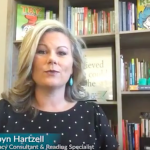Coaching High Performers

In many schools and other organizations, coaching is used mostly as a support for new teachers or those who are in great need of performance growth. While coaching can absolutely be beneficial in both cases, it is often used far less with teachers who are high-performing.
But why?
Professional athletes are elite performers, yet they all have coaches. In fact, it is imperative that they work closely with expert coaches to maintain and strengthen their skills. Coaching high-performers takes a different approach, but when an excellent teacher collaborates with a coach who understands the unique needs of those that excel, the impact can far exceed expectations.
In their book Building Teachers’ Capacity for Success (2008), Pete Hall and Alisa Simeral discuss a continuum of self-reflection which describes four levels of awareness and ways of thinking that reflect where a teacher may be in their professional growth process. Each stage of the continuum requires a different kind of coaching, so it is beneficial for coaches to be able to recognize where on the continuum a teacher may be. Many high-performing teachers exist in the “Refinement Stage”. In this stage, teachers tend to be reflective about all aspects of their practice; they can identify student needs and adjust instruction mid-teaching using a variety of tools they have gathered through experience, research, and professional learning. These teachers seek new ideas and seek opportunities to learn. They understand the impact of their teaching beyond the classroom walls and do not confine themselves or their students to doing things in one “right’ way. Just like professional athletes, these teachers know their game and have the skills that allow them to play it well. So what can a coach do?
With teachers in the refinement stage, a coach’s role is to support their continued growth, expand their impact, and challenge their thinking. One way a coach can support high-performers is to tap into their tendency for self-reflection by using rubrics and self-reflection forms as a part of video-based coaching.
When teachers record a lesson ask them to do some of the following as self-reflective exercises:
- Add at least 3 comments to their video that reflect what they were thinking or how they were making decisions at different points of the lesson.
- Tell what went as planned, what went well (in their opinion), what they would revise.
- Before recording, create a list of behaviors they want to see in their teaching. Watch the video and note how many of the behaviors they see. Create a goal based on the behaviors they want to see more of.
Coaches can also facilitate learning opportunities by connecting the teacher with others and offering professional learning beyond the traditional.
- Are there Twitter chats that the teacher might be interested in and could add value to?
- Are there blogs or teacher mastermind groups?
- Could the teacher and/or coach start one?
When questioning high-performers, coaches can challenge them by asking about the thinking that went into an instructional choice:
- How did you decide to _?
- What would you have done if ?
Coaches help professional athletes stay at the top of their game by challenging their expertly honed skills in new situations and adding new dimensions to the lens through which the athlete views the game. In the same way, instructional coaches help teachers not by giving advice or suggestions, but by offering them a lens to view their own teaching, draw their own conclusions, and develop new ideas and solutions.

Robyn Hartzell has served in education since 1998 and has experience in a variety of roles: teacher, instructional coach, interventionist, trainer, consultant, and program coordinator at the campus and regional levels. Currently, she works as an independent consultant and coach promoting effective instructional and leadership practices and championing the need for quality professional learning. Robyn takes privilege in coaching professionals in their craft and is passionate about helping organizations develop leaders who make a lasting, positive impact on the programs and people they serve.
Be sure to follow Robyn on Twitter @robynhartzellpd and check out her website at www.hartzellpd.com
Reference: Hall, P. A., & Simeral, A. (2008). Building teachers’ capacity for success: A collaborative approach for coaches and school leaders. Association for Supervision and Curriculum Development.



